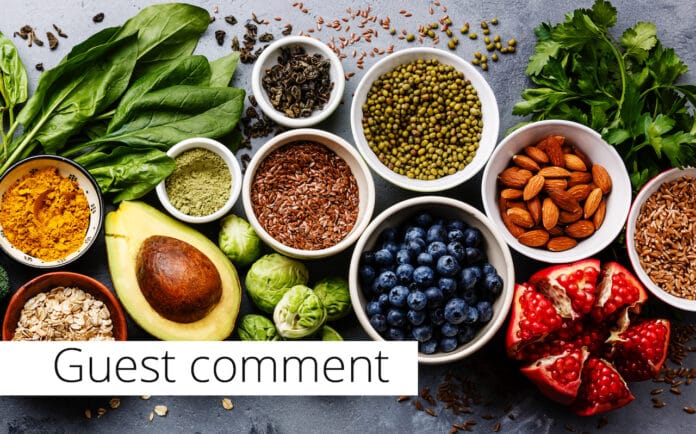Dominie Fearn, founder of sustainable food producer the Wild Hare Group, looks at the impact of the recent EU Smartchain project and how the UK food industry can echo its findings through supporting British Farmers.
With the recent conclusion of the EU-funded project ‘Smartchain‘, which saw major food businesses sign a new code of conduct focusing on sustainable food practices, there has never been more focus on short supply chains in the food industry. In the UK, we are fortunate to have an ambitious and accessible farming community, which means food producers are well placed to take full advantage, supporting local suppliers, while reducing their carbon footprint.
What is Smartchain?
Smartchain is an EU project fronted by 43 experts from 11 different countries with the overall aim of creating a ‘demand-driven’ approach to food transport with a focus on small, local, and sustainable agriculture. This framework aims to link small farmers with key stakeholders involved in food supply to allow their food to circulate within their own nation. The consequence of this is as environmental as it is economic. The food will travel a shorter distance, therefore reducing its carbon footprint; at the same time small farmers will benefit and not be dominated by large scale, international battery farming.
Another key element to this project is education. Symmetrical knowledge all the way from producer to consumer is so important and is a fundamental step towards creating a carbon conscious society. There’s no illusion that this can be achieved overnight, however thanks to recent EU legislation such as Smartchain we have seen long overdue recognition that short and smart supply chains are set to prove crucial in the journey towards net-zero emissions.
What UK food producers can do to reflect the work of Smartchain
The fundamental step I encourage UK food producers to take is to integrate British-grown produce into their supply chain. At Wild Hare, British farms are the backbone of our business and our reasoning for this goes beyond their geographical location. We, as producers, can help support an industry that creates more than four million jobs and contributes more than £120 billion to the UK economy. UK agriculture is also a global leader in welfare and quality standards with more than a third of growers incorporating renewable, low carbon energy into their farming practices. Supporting this forward-thinking system is a key step towards creating a sustainable UK food industry.
In essence, if you source food within the UK, the reduced travel distance will lower the amount of CO2 emitted into the atmosphere via transportation vehicles. According to Our World in Data, Supply chains account for roughly 18% of the total share of global greenhouse gas (GHG) emissions food is responsible for. Given that food accounts for 26% of all global GHG emissions you can start to appreciate how large an impact reducing food miles would have. But, with worldwide transport links continuing to improve, food producers can now source ingredients from all corners of the globe through the increasingly globalized agri-food model – something that isn’t helping to reduce the distance that food travels.
It’s time for a holistic approach
Throughout my career in sustainable food, there is one key aspect we are yet to achieve as an industry and that is a holistic approach. By this I mean the collective action of all actors involved in food production right through to consumption. Sustainability can only really be achieved when everyone shares a common attitude and ambition. The actions of governments, businesses and consumers all need to align to reach this common goal and I truly believe this is the closest we have come to this in the UK, and I remain optimistic for the future.
In recent years we have seen some cornerstone pieces of global legislation concerning sustainability. What I, and other sustainable food advocates want to see now is real change, stemming from those industry players who can really make a difference. Creating a holistic stance on a sustainable future starts with us as food producers; the small changes we make now can have a large impact in the future. Smartchain provided a framework for the sustainable future of food supply chains, now I believe it’s time for collective industry action.
Our approach at Wild Hare
Our range of ready meals is produced using high-quality, fresh, nutritious British-grown ingredients, all of which are from sustainable origins – with practically all ingredients traceable and transparent, with provenance at the heart of the supply chain. At present, we’re working towards producing the UK’s first net zero carbon ready meal, helped by a new partnership with a specialist carbon-tracking start-up called Reewild. This allows for detailed analysis of the carbon consumption in the supply chain, while allowing for any carbon footprint to be offset through a variety of sustainability projects.
By taking a carbon conscious approach and analysing the minutiae of our processes, we’re hoping to contribute to the wider sustainable drive. To coin a well-known retailer’s phrase: ‘every little helps’. We’re doing what we can, and we encourage others to do the same.











